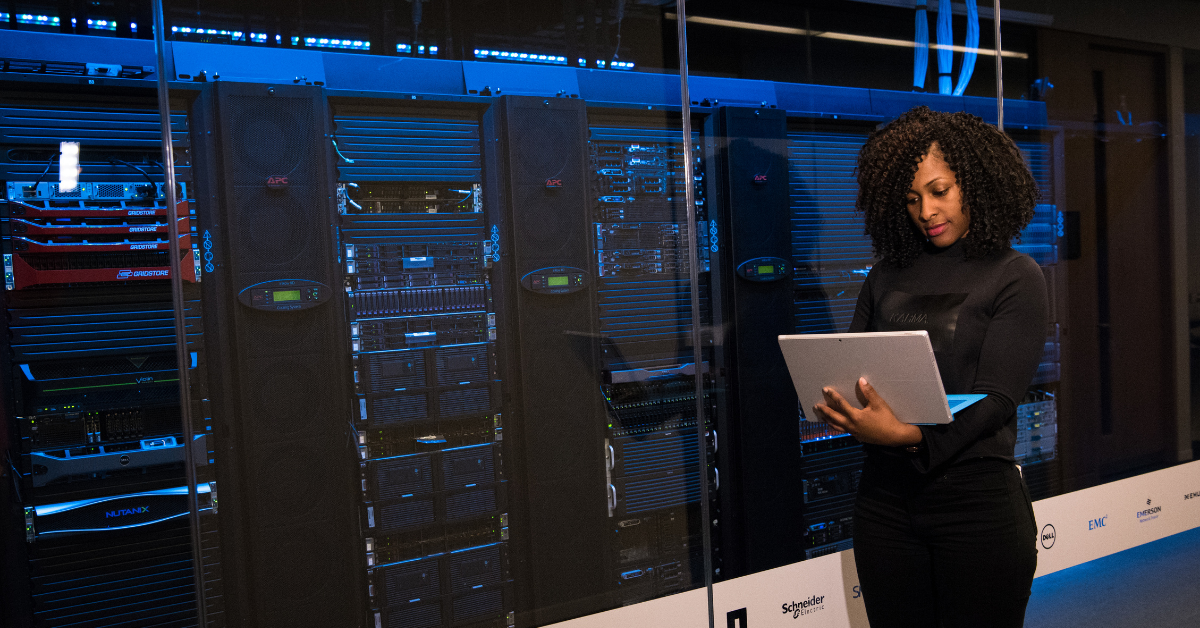Cloud security may sound intimidating, but there are actually some very simple ways to keep your data safe. Is “the cloud” a nebulous concept in your mind? You are not alone if you are still trying to figure out what cloud storage and cloud computing actually are. And then there is the bigger question of if the cloud is really secure for storing your files and personal data.
Cloud Security: What is The Cloud?
Before the cloud, we worked and stored data on our computers. If your computer ran out of space, you’d need to store files on a portable hard drive or install more memory. If you wanted to share files, you’d need to put them on a USB thumb drive and physically give them to the person you want to share with (unless they fit in an email attachment). This meant you could not create and share documents which makes professional collaboration very difficult. Then came cloud storage and cloud computing.
The cloud consists of software and services that run on the internet instead of on your computer. You access cloud services through an app or website which is on the internet. Here are some examples of cloud services that you are probably familiar with:
- Cloud Storage (Google Drive, Apple iCloud, DropBox, etc.)
- Video Streaming (Netflix, Hulu, etc.)
- Email (Gmail, Yahoo Mail, etc.)
- Google Sheets & Google Docs
Cloud Storage vs Cloud Computing
In cloud storage, you can remotely store and access files from remote servers. As long as you have internet access, you have access to whatever you have stored. Cloud computing is a little different because you are accessing remote computing infrastructure. These are shared resources that provide processing power. DropBox is an example of cloud storage, and cloud computing examples include webmail (Gmail) and online banking.
Benefits of Using The Cloud
Cloud storage and cloud computing have made big impacts. Cloud-based computers like Chromebooks enable people to maintain high productivity at lower costs. They have also made it easier to collaborate, share files, and reduce storage costs. Think about how much you pay to buy or rent movies versus subscribing to a streaming service.
Where is The Cloud?
“The Cloud” is actually something that exists in multiple locations. Cloud servers are generally located in data centers all over the world. Not having to maintain your own servers is another big benefit of cloud computing. Overall, cloud computing significantly lowers IT costs for businesses and gives their workers more flexibility. Even for those who do not work online, cloud computing offers amazing conveniences like being able to sign in to your social media from any device.
Is The Cloud Secure?
Cloud security relies heavily on encryption. Encryption scrambles your data into a format that cannot be deciphered. To unscramble the data, you need to have a key. That might be a simple password or two-factor authentication process. In most cases, the cloud service provider keeps a copy of your keys and is able to see what you are storing. This can be problematic if the company does not have good security or is unaware of a vulnerability in its security. However, there are other types of encryption where the cloud service provider does not keep a copy of the key. An example of this is the cloud platform Mega which features user-controlled end-to-end encryption.
Cloud Security Measures
Overall, the cloud is a pretty secure place. However, your own online behaviors and actions can cause security problems. If you fall victim to phishing scams, malware, or ransomware, people may gain access to your cloud and your hard drive!
What Cloud Providers do to Keep You Safe
- Firewall Protection
- File Encryption
- Data Back-ups
- Security Updates and Maintenance
What You Can do to Ensure Cloud Security
- Use a strong password and two-factor authentication
- Go to your “Shared” file and audit who and what has access
- Audit connected apps and only give access to the ones you use
- View connected devices and remove any that you are not actively using
- Turn on account alerts so you know whenever someone logs into your account
- Clear out your deleted files
- Enable account recovery options
- Sign out when you are not using accounts
- Store passwords securely with a reputable password storage app
- Avoid keeping sensitive documents and information on shared drives



Recent Comments